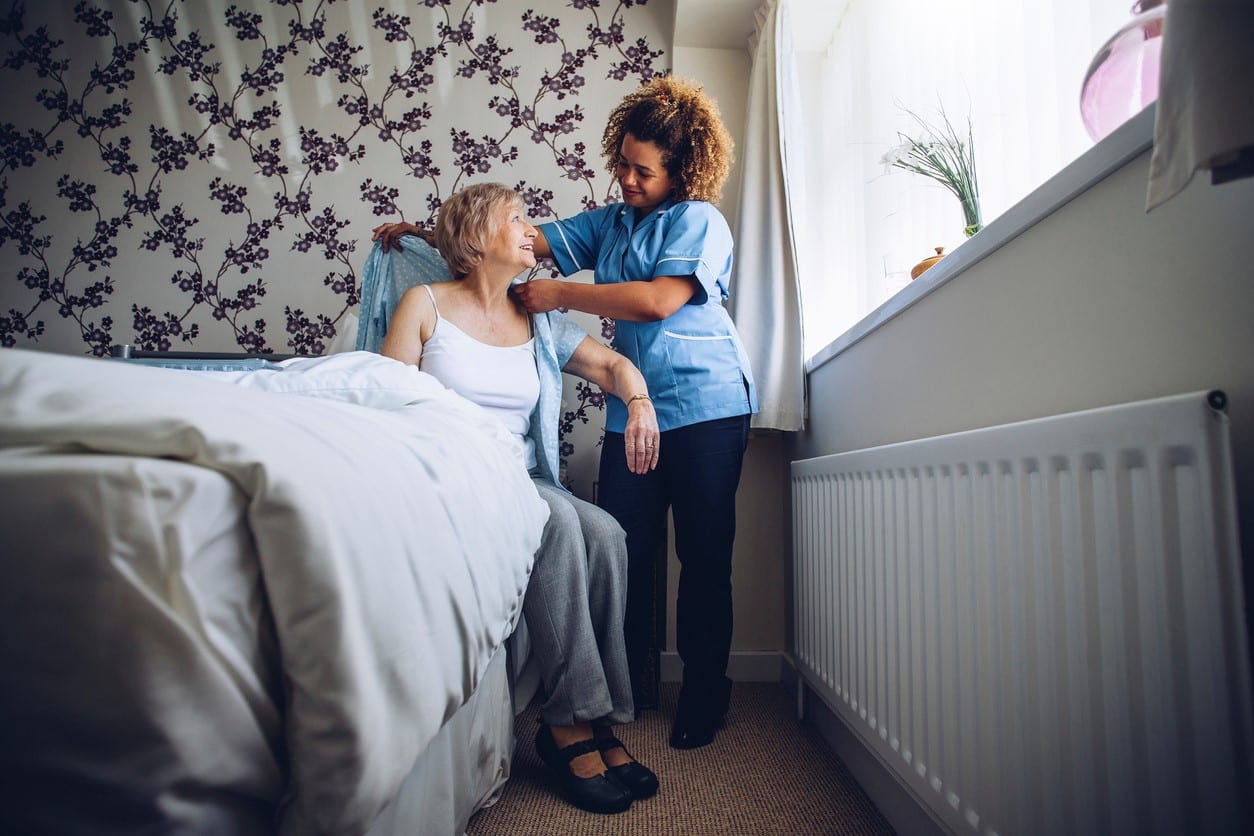Finding the right option for your loved one
Someone you love is in need of care and you’ve decided to obtain it for him or her in the home. Decision made, right? Actually, there is a new set of important questions left to answer. What are the types of in-home care? Which one do I need? How do I find the right company for my loved one? Will they be safe?
There are many different reasons someone needs help at home, ranging from assistance with daily activities like cooking meals to help with medical treatment. It might not seem like it, but these types of care require different types of caregivers.
1. Non-certified aides and companions
Also known as personal care givers or companions, non-certified aides provide personal care services for seniors that exclude any medical treatment or activities that require any medical training. This can include:
Housekeeping
Meal preparation
Laundry
Offer companionship
Provide transportation
The distinct difference between a personal caregiver and a companion is that a personal caregiver has formal training to provide more direct personal care services for an aging senior. Companions are not allowed to provide hands-on assistance to their clients and are more restricted to household duties and transporting seniors to doctor appointments, grocery shopping, etc.
If a loved one is more in need of supervision and friendship than physical support, than a companion or chore worker would be best for them. Otherwise, a personal caregiver can perform all the same duties as a companion, as well as long-term personal care services such as bathing and grooming. Personal caregivers and non-certified aides are required to have a home health aide certification from a nurse-supervised training program.
A companion typically works part-time, for a few hours at a time a couple days per week, while a non-certified aide typically works longer shifts, such as a morning or night shift, on a more consistent basis. Non-certified aides may also be contracted for full-time work.
2. Certified aides
Also known as Certified Nursing Assistants (CNAs) or Home Health Aides (HHAs), certified aides can be employed by both medical home health agencies and non-medical home care agencies. They provide all of the activities of daily living (ADL) that non-certified aides can provide, as well as the following:
Physical assistance getting in and out of bed, in and out of the bathroom, etc.
Competent in making observations on a patient’s condition and reporting to professionals
Wound/bedsore treatments and dressing changes
CPR
Other medical care such as tube feedings, catheter care, and diabetic monitoring can be done by a certified aide when under the supervision of a registered nurse (RN) or licensed practice nurse (LPN). Certified aides can be covered by insurance when employed by Medicare/Medicaid licensed home health agencies, while non-certified aides aren’t typically covered by Medicare or private insurance when provided through a non-medical home care agency. CNAs and HHAs are required to complete similar training, which varies by state, but typically includes a training course and a written and practical exam. If your loved one is in need of physical assistance, a certified aide would be more beneficial than a non-certified aide.
3. Nurses
Also known as Licensed Practice Nurses (LPNs) and Registered Nurses (RNs), nurses fulfill the widest range of care and provide all of the services of a certified aide, as well as:
Prefilling medication boxes
Administering insulin
Intravenous medications
Wound care
Changing catheters
Nurses must complete a college program to obtain their nursing licenses. LPNs work under the supervision of an RN or physician. Nurses would be the best fit for an aging senior who is dealing with an illness or injury that requires constant care while still wanting to stay at home.
Once you decide which type of service is best for your loved one, the next step is deciding if you want someone overnight, during the day, on an hourly basis, every weeknight or weekend, and so forth. The final step is choosing a home care agency that can provide you with everything you need to make you and your loved one feel comfortable with the transition.
A full-service home healthcare organization can provide overnight, daytime, and hourly care from nurses, home health aides, and companions, and determine what types of care work for your loved one. Best of all, if you want to change your type or level of care, you can do it all with one organization.
If you’re looking for care in Palm Beach, Broward, Indian River, Martin, or St. Lucie Counties, FirstLantic is ready to assist you. We have been offering unmatched home healthcare services for over 17 years and pride ourselves on making our clients and their families feel safe at home. Call us 24/7 at 877-618-3624 or send us an email at [email protected].
 AVAILABLE 24 HOURS A DAY/7 DAYS A WEEK
AVAILABLE 24 HOURS A DAY/7 DAYS A WEEK Careers
Careers







